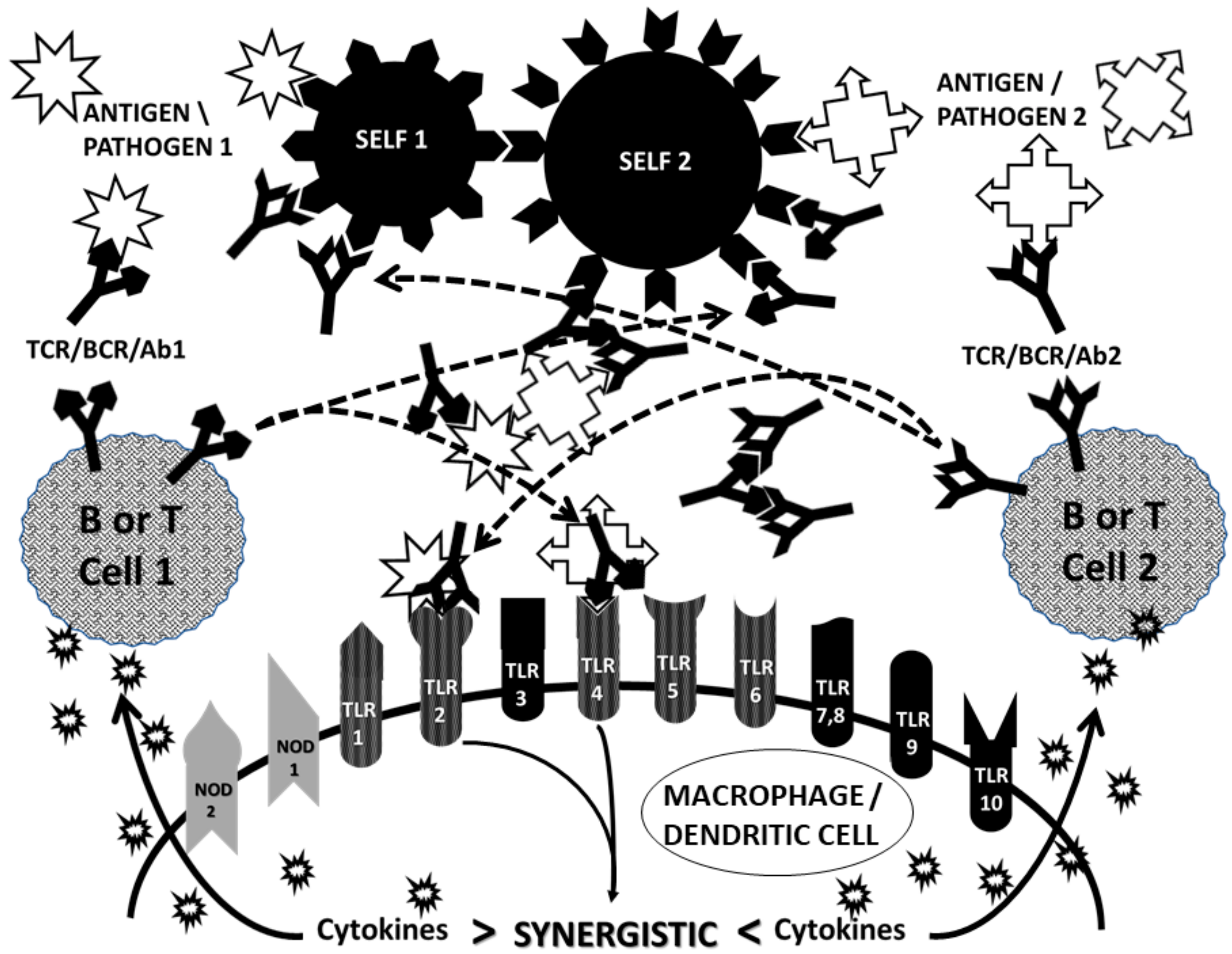
Figuring out the cause of skin disease in cats can be difficult although in some cases the cause is more easily determined. The disease usually appears to be idiopathic although it has been associated with drug administration and can develop subsequent to chronic usually allergic skin disease.

Since it believes that they are foreign the immune system basically attacks the cats body even though it is healthy.
Can cats cause autoimmune diseases in humans. As the name implies this bacterial infection is usually transmitted from cat to human via scratches although it can also be transmitted via bite wounds and when a cat licks the open wounds of a person. Among cats this bacterium is most commonly transmitted by the bites of infected cat fleas and it may also be found in the feces of these fleas which can serve as sources of infection if exposed to an. Campylobacter bacteria can cause serious life-threatening infections in infants older persons and those with weakened immune systems.
Cat-scratch Disease Bartonella henselae Cat-scratch disease is a bacterial disease that people may get after being bitten or scratched by a cat. About 40 of cats carry the bacteria at some time in their lives although kittens younger than 1 year of age are more likely to have it. Most cats with this infection show no.
There are many autoimmune diseases recognized in humans. Many of these have counterparts in companion animals. The diseases discussed in this article do not constitute the entire spectrum of autoimmune disease in these species.
They are the common and better-described diseases of dogs and cats that have a well-documented autoimmune etiology. There are myriad autoimmune diseases that affect humans. Similar diseases yet unrecognized in companion animals likely will.
If a cat eats a smaller animal infected with toxoplasma a parasite it can transfer to their humans as well. The Toxoplasma gondii parasite is one of the most common parasites and often it doesnt cause symptoms in cats or humans. Cats who carry the parasite may appear depressed lose weight seem shaky or have a fever.
Cats can spread salmonella to humans. This infection may cause fevers abdominal pain vomiting diarrhea and other symptoms in humans. Cats may not have any symptoms from salmonella so handlers may not realize the risk.
Toxocariasis is an infection caused by the transmission of Toxocara parasitic roundworms from dogs and cats to humans. According to the CDC almost 14 of Americans have Toxocara antibodies. Cats and dogs can have an autoimmune disease just like humans.
In this situation a cats immune system would become incapable of distinguishing between its own cells or tissues. Since it believes that they are foreign the immune system basically attacks the cats body even though it is healthy. Cats and humans can acquire giardia by ingesting infected feces or water.
If your cat has soft frothy or greasy diarrhea with excess mucus and a. The cause or causes of autoimmune disease are not understood although some theorize that genetics andor environmental pollutants play a role. Certain drugs have also been reported as potential triggers for pemphigus foliaceus a common form of autoimmune skin disease in cats.
Early recognition is extremely important. Left untreated the complications of autoimmune disease are serious and. Recently some common bacteria and viruses have been linked to autoimmune diseases but the exact mechanisms of how the pathogens cause these diseases have been a mystery.
Most infectious feline diseases affect only cats just as human ills afflict only people. But some called zoonotic diseases can be transmitted between cats and people. Through contact with an infected cats feces or saliva infected fleas or ticks a person could contract a zootonic disease from an animal.
Well look at a few common ones. Diseases that cats spread to humans fall into two main groups namely parasitic infestations and bacterial or viral infections. There are very few diseases that can spread from cats to humans.
The only two that have potentially seriousfatal consequences to normally healthy people are toxoplasmosis and rabies. Cat faeces can be the source of many infections and should not be. Figuring out the cause of skin disease in cats can be difficult although in some cases the cause is more easily determined.
Careful consideration of the history of the illness a physical examination the results of diagnostic tests and in some cases response to treatment or modification of diet or lifestyle is important. The history can provide information about potential exposure to. Systemic Lupus Erythematosus SLE in Cats Autoimmune diseases are the result of an immune system that has become hyper-defensive attacking the cells tissues and organs of its own body as if they are diseases that need to be destroyed.
Feline leukemia virus FELV infection in cats causes impairment of multiple immune functions. An infected cat will have an impaired immune system and a higher risk of acquiring infections from bacteria and other infectious agents in the environment. Dormant infections such as feline infectious peritonitis may suddenly flare up again.
In healthy people toxoplasmosis often causes a flulike illness or no symptoms at all. But it can occasionally be dangerousor even fatalin those. PF is the most common condition of the pemphigus complex 38 and is the most frequently occurring autoimmune skin condition in dogs cats and horses.
The disease usually appears to be idiopathic although it has been associated with drug administration and can develop subsequent to chronic usually allergic skin disease.